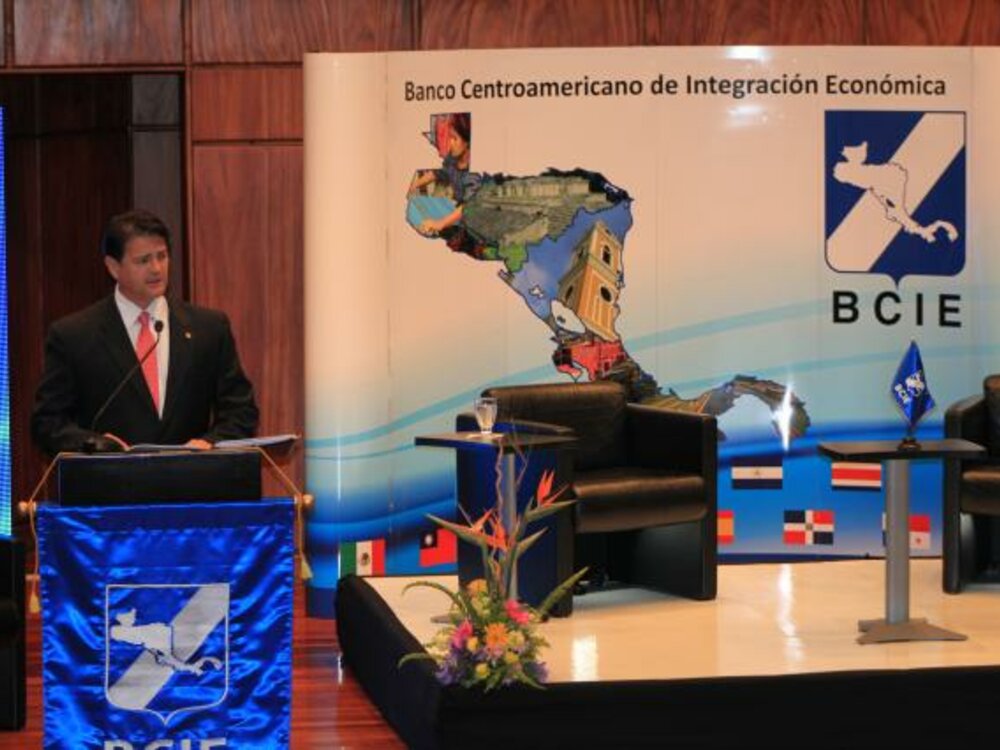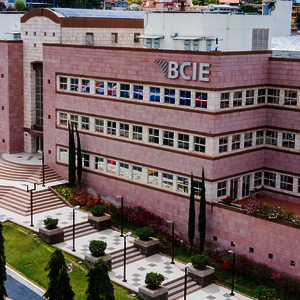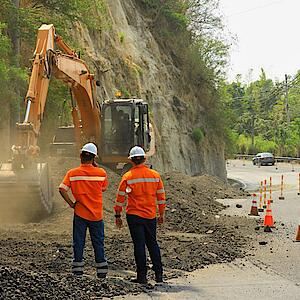CABEI supports water sanitation and renewable energy investments in Central America

CABEI's Executive Vice President: "By 2014, CABEI expects to finance with $ 360 million the energy sector in the region"
Tegucigalpa, March 2014 20.- For 54 years, in a history marked by important achievements which have an impact on the equitable and sustainable development of the countries of the region, the financings of CABEI have been directed toward projects of regional interest, with which the multilateral bank seeks the improvement in the quality of life of Central Americans, as well as the sustainable use of the natural resources of the countries.
As part of its efforts for regional development, the CABEI convened international experts and of its own for the realization of a high-level forum that will analyze two issues of key importance in the world today: the issues of energy and water.
At the opening of the “First Regional Meeting of Utilities: Water-Energy Sectors” today, the CABEI's Executive Vice President, lawyer Alejandro Rodríguez Zamora, revealed that by 2014 CABEI expects to finance with $360 million dollars the energy sector in the region.
He mentioned that the financing of the Bank covers various programs and projects with the aim of strengthening the sanitation of water and renewable energy investments.
In his speech, the CABEI's Executive Vice President, , lawyer Alejandro Rodríguez Zamora, explained that since 2001 CABEI has supported 170 energy projects, with an investment of US$ 2,900 million, whereas in the 54 years of its founding, CABEI funded regional water and energy projects amounting to U.S. $ 4.060 million.
He explained that CABEI has deepened the alignment of their interventions to the needs of the region, promoting integration and balanced economic and social development of its member countries, and contributing to the fulfilment of the Millennium Development Goals (MDG).
Within this scheme there have been approved initiatives for the strengthening of water and energy services, in order to improve the supply, access, efficiency and quality of basic services to the countries of the region.
The event, which was held at the headquarters of CABEI in Tegucigalpa, had the participation and opening remarks of the Secretary of State of Honduras of the Offices of Infrastructure and Public Services (INSEP) and Sectoral Coordinator of Productive Infrastructure, engineer Roberto Ordóñez Cabinet
Experts Discuss Energy, Water And Regional Development
For the specialist CABEI engineer Raul Castañeda, the multilateral bank has approved in the areas of water and energy more than $4,060 million dollars, of which more than over 81% have been approved since 2001, i.e. approximately 3,300 million dollars.
The 87% of these $3,300 million dollars have been assigned to investments in projects of energy and 13% to water and sanitation related interventions. This means that they are sectors that have grown strongly in recent years.
Without a doubt the CABEI has been the main partner for the financing of energy projects, public and private; since 2001 there have been more than $2,900.0 million approved through 170 interventions in the region, of which 64% have been in renewable energy projects and 19% in energy infrastructure Central American Electrical Interconnection System (SIEPAC).
Altogether the CABEI has supported the generation of approximately 4,505 MW, equivalent to 38% of the installed capacity in the Central American region. It has therefore contributed more than 30 million tons in the reduction of greenhouse gases, Castañeda stated.
In the water and sanitation sector CABEI has been growing exponentially in its participation, said the specialist of the Bank, since 52% of all approvals of the sector, i.e. more than $315.0 million dollars were approved in the last 2 years.
For his part, Ismael Cala, started to the discussion group "Energy, Water and Regional Development" in which they shared their knowledge Osío Dr. Alonso Acosta CABEI’s Director for Colombia, the representative of the Central American Electrical Interconnection System (SIEPAC), engineer José Carlos Farfán; the Senior Advisor in natural resources USAID Pro Park, engineer Carlos Rivas; and the Technical Vice President of the National Association of Public Utility Services and Complementary Activities (ANDESCO) of Colombia, Dr. Mauricio Lopez.





![[Translate to English:] [Translate to English:]](/fileadmin/_processed_/e/3/csm_WhatsApp_Image_2024-04-18_at_2.12.23_PM__2__590ef43ade.jpeg)

